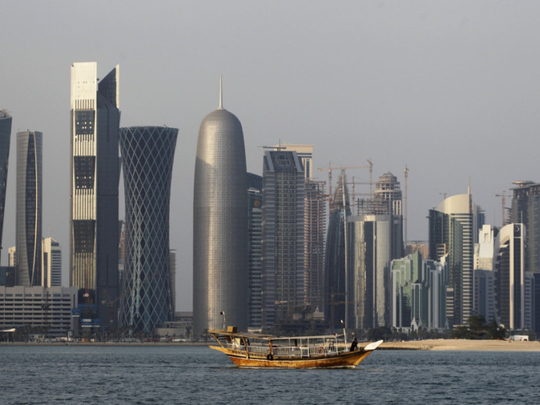
The moment the four countries took the decision to put a stop to Qatari regime’s meddling, Doha started floundering, looking for someone to rescue it from the boycott, wrote the UAE’s Al Bayan. “Qatar then resorted to a failed ploy of internationalising the crisis, as it sought to internationalise and politicise the Haj dossier, emulating the approach of Iran. And just like Iran, it failed. It then attempted to internationalise the airline routes dossier by resorting to the International Civil Aviation Organisation (ICAO), complaining about its neighbours and accusing them of closing their airspaces to Qatari airlines, a complaint that ICAO has rejected. The country also resorted to the International Maritime Organisation, claiming that the procedure taken by the four nations violate international laws pertaining to maritime navigations. It also failed in that regard. Qatar, which is used to conspiring in the dark with its terrorist allies, is not able to comprehend that the crisis is purely political, and that it is a natural outcome for the seeds its regime has planted throughout the years,” the paper said.
The Qatari crisis is a result of wrong policies by Doha, which is known for financing terrorism and sheltering terrorists, said Saudi Arabia’s Al Yaum. “The four countries remain steadfast in their stance towards Doha, a stance which revolves around the importance of Doha’s commitment to agreements signed in 2013 and 2014, and commitments made during the Arab-Islamic-American summit to stop all forms of support for terrorism. It is already Doha’s intent to prolong the crisis and to make Qataris bear the brunt of economic difficulties, because it has engaged in political manoeuvres and manipulations in a bid to distance itself from its support for terrorism and has continuously rejected the four countries’ demands. The current crisis will not end unless Doha complies with the demands of the four nations. These demands are fully consistent with international efforts to contain this negative phenomenon. It is not in Doha’s interests to sympathise with terrorists, bully foreign nations, stockpile weapons on Qatari lands and go against the grain. Such methods are futile and will not help with settling the crisis or in facing the impact of said crisis on the people of Qatar, which is respected and loved by the four countries and the entire world.”
Qatar’s conspiratorial policies that interfered in the internal affairs of Bahrain, in addition to other Arab countries, is a part of the country’s hostile policies that it has been practising for the past 20 years, wrote Bahrain’s Akhbar Al Khaleej.
“Qatar has done this by opening communication lines and financing opposition groups and extremist forces for the purpose of shaking up the security and stability of Arab and Gulf countries. It is a fact that brotherly ties and Arab values did not discourage Qatar from its conspiratorial policies and or dissuade it from tampering with the security and stability of Bahrain, a brotherly country that shared historical ties with Qatar. These Qatari policies of interference contradict all Arab and Islamic values, in addition to international laws, and these policies are now being dealt with within a framework of coordination and joint Gulf-Arab work, reflected through the strong cooperation between Saudi Arabia, Bahrain, UAE and Egypt.”





_resources1_16a31069e4e_small.jpg)





